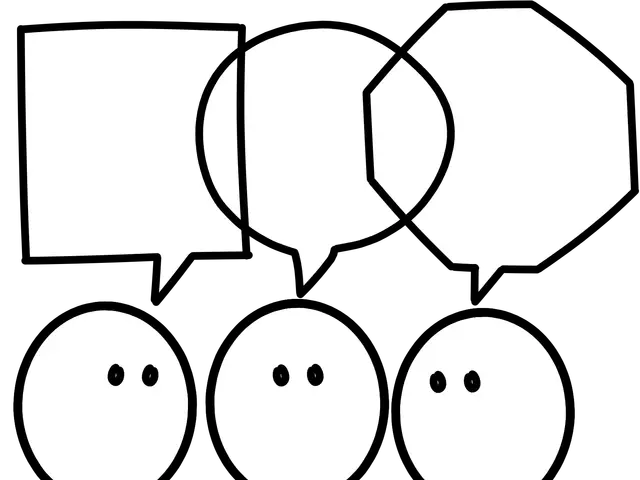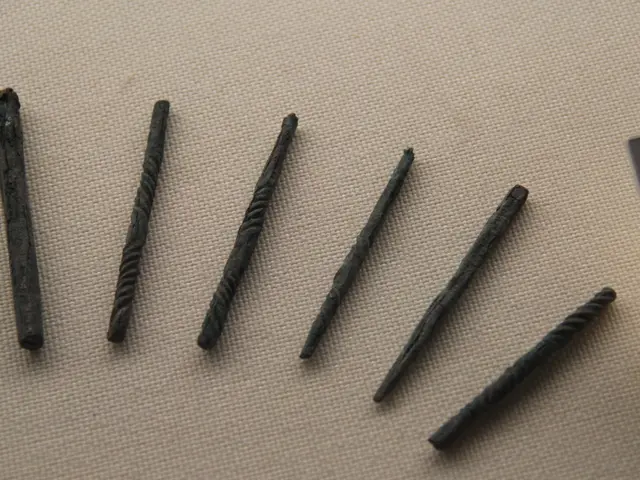Process of Eliminating Unwanted Recollections by the Brain
Brain's Ability to Erase Unwanted Memories
Intrigued by the brain's knack for forgetting, scientists have discovered that people can intentionally remove specific information from their memories. This process, dubbed active forgetting, involves dampening the brain circuits that initially stored the unwanted memories.
Researchers from the University of Wisconsin-Madison shed light on this fascinating mechanism in a recent study. By examining participants' brain activity during a memory task, they found that forgetting is associated with reduced excitability in brain regions linked to the forgotten item. This suggests that the brain actively clears space in memory, which could assist in managing intrusive thoughts or negative recollections.
This newfound understanding could provide insights into the workings of the brain and help those struggling with persistent, unwanted memories. Several scenarios call for consciously removing unneeded details from memories, especially when these recollections are harmful or lead to issues such as rumination, intrusive negative thoughts, or hallucinations.
In a study published in the Journal of Neuroscience, Jiangang Shan and Bradley Postle delved into the neural mechanisms behind this active removal of unneeded memory content. Participants were given two items to remember initially, with experimental conditions encouraging participants to either subconsciously forget one item (passive removal) or actively remove the item from their memories. Following this, participants memorized a third item.
To test their hypothesis, researchers measured the brain activity of nearly 30 study participants. The findings indicate that active removal of information from memory is linked to less excitable brain circuits that initially process unwanted memory content.
Active forgetting may offer benefits for mental health management, as it allows individuals to controlling intrusive thoughts and negative recollections that can exacerbate symptoms like anxiety, rumination, or hallucinations. By understanding these mechanisms better, researchers can design therapies aimed at helping those struggling with distressing memories and improve overall mental health outcomes.
However, it's important to note that real-life experiences are more complex than laboratory studies. The brain employs various mechanisms to block out irrelevant information during memory replay and consolidation. Research is ongoing to better comprehend the role of inhibitory neurons involved in this process and potential trade-offs when suppressing memories excessively. Overall, active forgetting is a valuable tool in cognitive management, offering a unique insight into memory retention and mental health.
Sources and Further Reading
- This summary is based on research published in the Journal of Neuroscience. For the original research paper, please refer to: Shan, J., & Postle, B. (2022). EEG Correlates of Active Removal from Working Memory. Journal of Neuroscience.
- To learn more about active forgetting, you can visit the Society for Neuroscience (SfN) website at www.sfn.org.
- Neuroscience news reports that scientists have discovered a process called active forgetting, where individuals can intentionally remove specific information from their memories by dampening brain circuits storing unwanted memories.
- The brain's ability to erase unwanted memories is associated with reduced excitability in brain regions linked to the forgotten item, as revealed by brain activity research in a study published in the Journal of Neuroscience.
- Active forgetting could have significant implications for mental health, as it may help manage intrusive thoughts or negative recollections that contribute to issues like rumination, anxiety, or hallucinations.
- A study by Jiangang Shan and Bradley Postle, published in the Journal of Neuroscience, delved into the neural mechanisms behind actively removing unneeded memory content from the brain.
- By understanding the mechanisms of active forgetting, researchers may be able to design therapies aimed at helping those struggling with distressing memories and improve overall mental health outcomes, contributing to the field of health-and-wellness and mental-health discipline.






